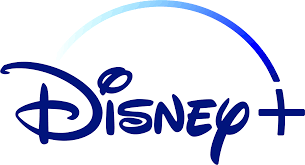 Disney+ will begin charging a fee to out-of-household users in November 2023. Canadian Disney+ subscribers were notified of the change in usage terms via email at the end of September. This follows in the footsteps of Netflix, which began charging $7.99 per month for each “account borrower” that exceeded the number of permitted users on a streaming account earlier in 2023.
Disney+ will begin charging a fee to out-of-household users in November 2023. Canadian Disney+ subscribers were notified of the change in usage terms via email at the end of September. This follows in the footsteps of Netflix, which began charging $7.99 per month for each “account borrower” that exceeded the number of permitted users on a streaming account earlier in 2023.
Disney+ has not yet announced how many “extra” users will be allowed, has not announced pricing, nor has it indicated which of its service territories might be next. Netflix allows two on premium accounts, one on standard accounts, and none on other service tiers.
Mobile Syrup, a Canadian news site, quoted a new “account sharing” section in its Canadian subscriber agreement:
“Unless otherwise permitted by your Service Tier, you may not share your subscription outside of your household. “Household” means the collection of devices associated with your primary personal residence that are used by the individuals who reside therein. Additional usage rules may apply for certain Service Tiers.
“We may, in our sole discretion, analyze the use of your account to determine compliance with this Agreement. If we determine that you have violated this Agreement, we may limit or terminate access to the Service and/or take any other steps as permitted by this Agreement (including those set forth in Section 6 of this Agreement).
“You will be responsible for any use of your account by your household, including compliance with this section.”
Because any attempt to access the Disney+ Canadian site to verify the new terms directly from a US location were redirected to the Terms page on the Disney+ US site, Piracy Monitor could not verify the new Canadian terms directly.
Meanwhile, terms within the Disney+ Subscriber Agreement for the US were unchanged at the time of this writing. Section 3.c of the Disney+ Subscriber Agreement, Copyright License Grant and Restrictions, simply says “You agree that as a condition of your license, you may not and agree not to: (xi) share your login credentials with third parties…”
Disney said it was coming
During The Walt Disney Company’s third (fiscal) quarter investor call in August, CEO Bob Iger said Disney was “actively exploring ways to address account sharing and the best options for paying subscribers to share their accounts with friends and family. Later this year, we will begin to update our subscriber agreements with additional terms on our sharing policies.”
“We already have the technical capability to monitor much of this. I’m not going to give you a specific number, except to say that it’s significant. What we don’t know (is)… how much of the password sharing … will convert to growth in subs…,” Iger said.
He noted that there will be “some impact” in 2024 but the work may not be completed within that year. It’s “a real priority… (and) an opportunity here to help us grow our business,” he said.
Netflix has already reported that its own initiative has been a success, estimating that it gained about 6 million new subscribers by the end of the quarter during which it implemented its policy. Whether or not the tactic has reduced criminal enterprise may be known internally but not by the public.
Further reading
Disney+ to begin cracking down on password sharing in Canada in November. Article. September 27, 2023. by Bradly Shankar. Mobile Syrup
Q3 2023 Earnings Conference Call. Transcript. August 9, 2023. The Walt Disney Company. See Pages 7 and 16.
Netflix: Revenue and subscribership are up. Number of pirates brought down: unknown. Article. July 20, 2023. By Steven Hawley. Piracy Monitor.
Why it matters
Driven by a combination of market saturation, flattening growth, competition and rising costs, streaming providers are implementing new ways to improve revenue. While Netflix was at the vanguard of charging for shared accounts, with Disney to follow, additional charges for out of household users are likely to become a standard business practice across most streaming services worldwide.
Beyond this new payment model, most major streaming companies have introduced ad-supported tiers at a lower price; the most recent being Amazon, which will, in effect, charge $2.99 per month to remove advertising through Prime Video. Disney increased prices for its own ad-free bundles by about $3.00 per month in September.
Paramount Plus, which carries programming from sister company CBS as well as its own series and cinematic content, already runs pre-roll and mid-roll advertising in many of its series TV shows. In this way, streaming is looking more and more like “TV.”












